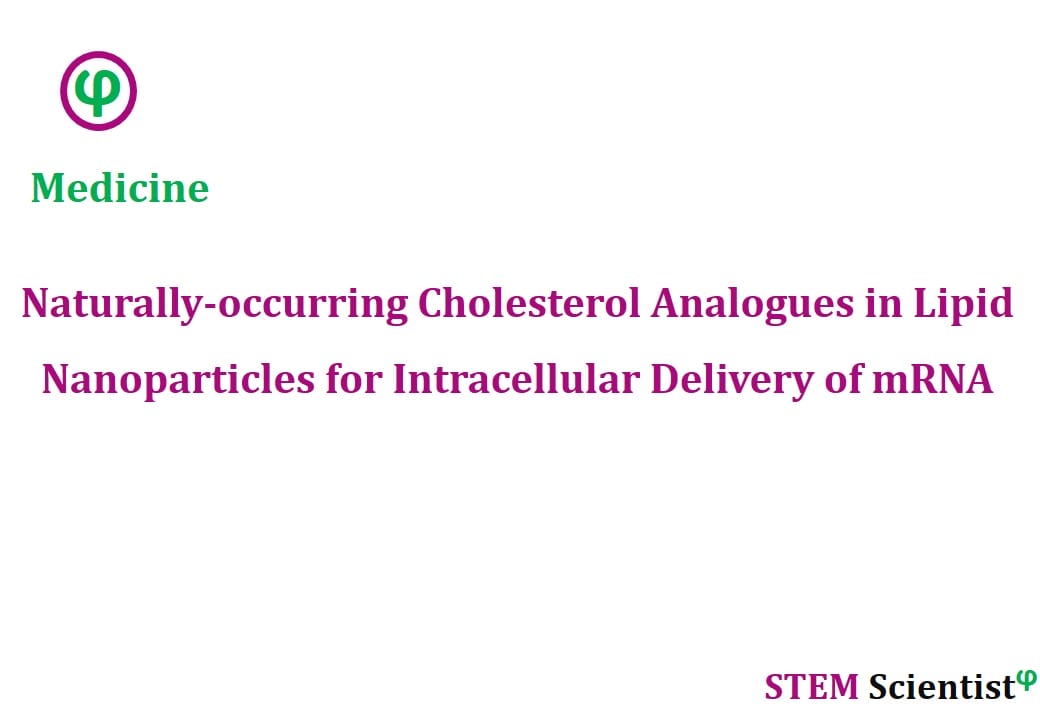
The following study was conducted by Scientists from Department of Pharmaceutical Sciences, College of Pharmacy, Oregon State University, Portland, USA; Moderna Therapeutics, 200 Technology Square, Cambridge, USA; French Family Science Center, Department of Chemistry, Duke University, Durham, NC, USA; Department of Biomedical Engineering, Oregon Health and Science University, Portland, USA. Study is published in Nature Communications Journal as detailed below.
Nature Communications; Volume 11, Article number: 983; (2020)
Naturally-occurring Cholesterol Analogues in Lipid Nanoparticles Induce Polymorphic Shape and Enhance Intracellular Delivery of mRNA
Abstract
Endosomal sequestration of lipid-based nanoparticles (LNPs) remains a formidable barrier to delivery. Herein, structure-activity analysis of cholesterol analogues reveals that incorporation of C-24 alkyl phytosterols into LNPs (eLNPs) enhances gene transfection and the length of alkyl tail, flexibility of sterol ring and polarity due to -OH group is required to maintain high transfection. Cryo-TEM displays a polyhedral shape for eLNPs compared to spherical LNPs, while x-ray scattering shows little disparity in internal structure. eLNPs exhibit higher cellular uptake and retention, potentially leading to a steady release from the endosomes over time. 3D single-particle tracking shows enhanced intracellular diffusivity of eLNPs relative to LNPs, suggesting eLNP traffic to productive pathways for escape. Our findings show the importance of cholesterol in subcellular transport of LNPs carrying mRNA and emphasize the need for greater insights into surface composition and structural properties of nanoparticles, and their subcellular interactions which enable designs to improve endosomal escape.
Source:
Nature Communications
URL: https://www.nature.com/articles/s41467-020-14527-2
Citation:
Patel, S., N. Ashwanikumar, et al. (2020). “Naturally-occurring cholesterol analogues in lipid nanoparticles induce polymorphic shape and enhance intracellular delivery of mRNA.” Nature Communications 11(1): 983.


